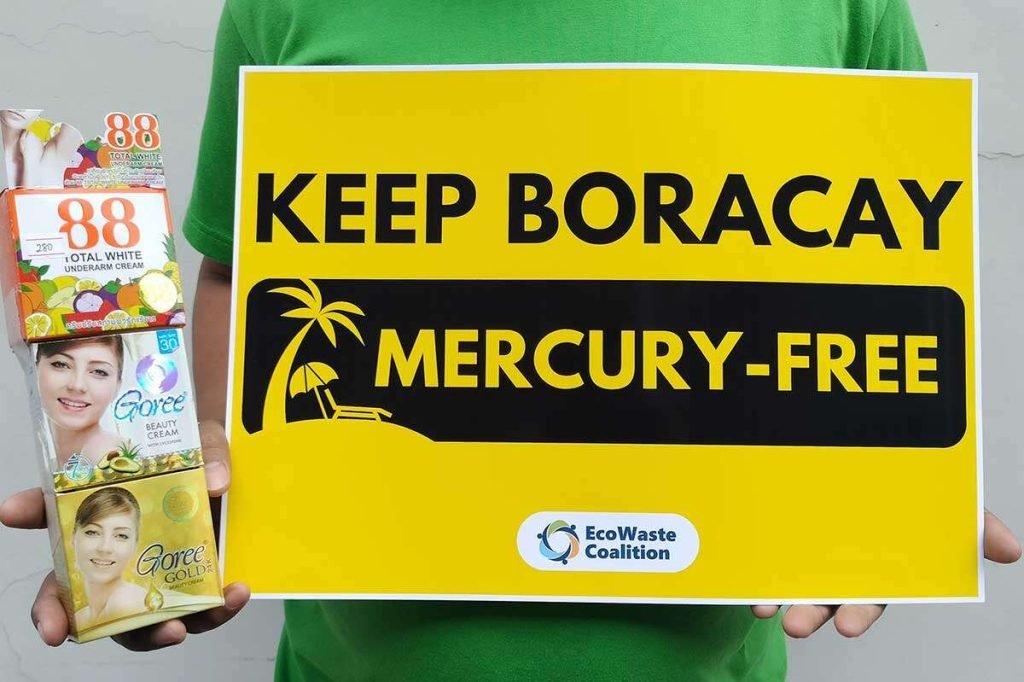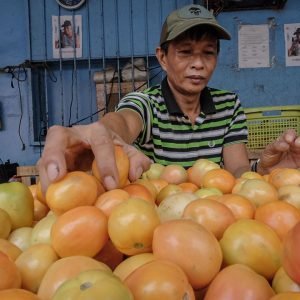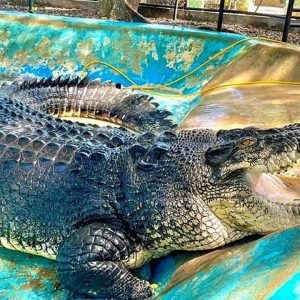
The EcoWaste Coalition urges the government and people of Malay, Aklan to keep Boracay Island mercury-free.
Quezon City. Boracay Island, the country’s top tourist destination, is not spared from the unlawful trade of contraband cosmetics with high mercury content.
The EcoWaste Coalition made this observation known to the municipal authorities of Malay, Aklan Province through an email sent on February 5 to Mayor Floribar Bautista.
“We regret to inform your good office that imported cosmetics adulterated with mercury, a highly toxic chemical that can harm human health and the environment, have reached the shores of Boracay,” wrote Aileen Lucero, National Coordinator, EcoWaste Coalition.

“As these cosmetics are illegal to import, distribute and offer for sale, we request your office to initiate speedy action to stop such trade that can put the health of your constituents and the environment at risk of mercury contamination,” she said.
In a test buy arranged by the EcoWaste Coalition, a visiting volunteer managed to purchase products in Boracay that have long been prohibited by the Food and Drug Administration (FDA) for lacking market authorization and/or for containing mercury above the trace amount limit of one part per million (ppm).
Among the FDA-banned cosmetics openly sold in one beauty product store located in Ambulong St., Manoc-Manoc are:
- Thailand-made 88 Total White Underarm Cream; banned since 2021.
- Pakistan-made Goree Beauty Cream with Lycopene; first banned in 2017 and again in 2023.
- Pakistan-made Goree Gold 24K Beauty Cream; banned in 2023.
To show the toxicity of the products purchased, the EcoWaste Coalition subjected the samples to chemical screening with the aid of a portable X-Ray Fluorescence (XRF) spectrometer.
As analyzed by the XRF, Goree Beauty Cream with Lycopene contained 28,240 ppm of mercury, while Goree Gold 24K Beauty Cream and 88 Total White Underarm Cream had 26,390 ppm and 2,064 ppm, respectively, way beyond the 1 ppm limit.

“In fact, the extreme levels of mercury in these skin whiteners would qualify them as hazardous waste,” said Lucero citing the 15 ppm threshold value for waste contaminated with mercury and its compounds under the Minamata Convention.
Mercury and its compounds are prohibited for use as an ingredient in cosmetics as per the ASEAN Cosmetic Directive. Repeated application of skin lightening products with mercury content could lead to skin rashes, blotching and discoloration. Long-term exposure may result in serious adverse reactions such as damage to the renal, digestive and central nervous systems.
The natural environment is also affected as mercury in adulterated products is discharged through wastewater and into water bodies, contaminating the water and the food supply, the EcoWaste Coalition said.
“We trust the municipal government will handle this pressing public health concern with dispatch and eliminate mercury cosmetics in Boracay and the whole of Malay,” the EcoWaste Coalition concluded.







